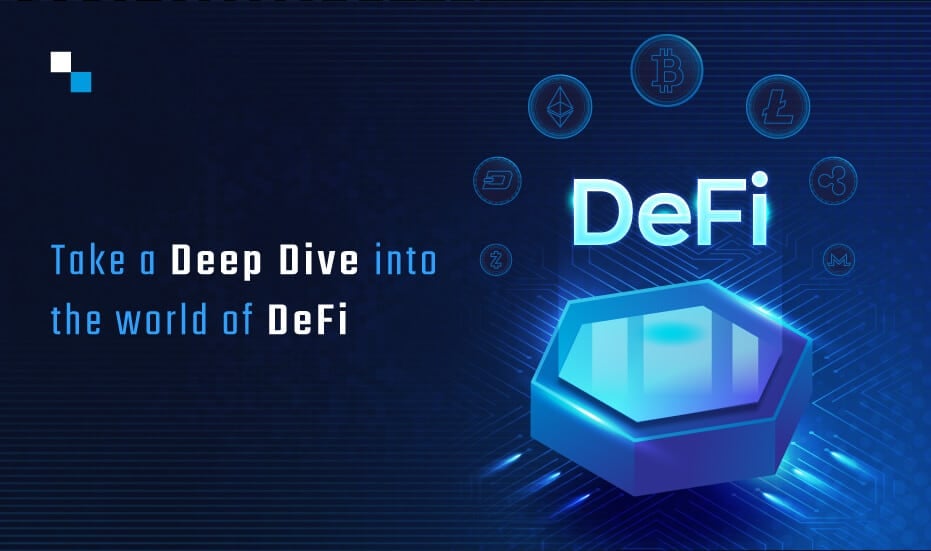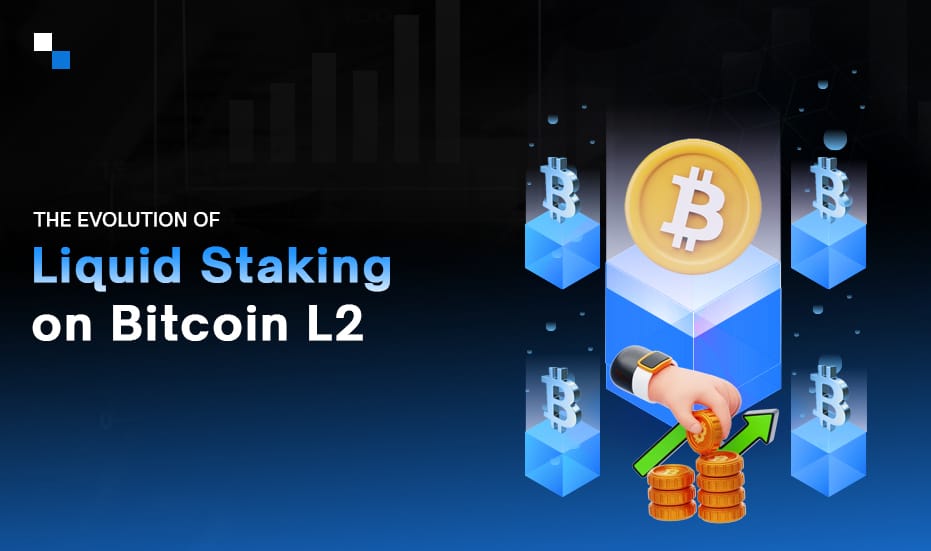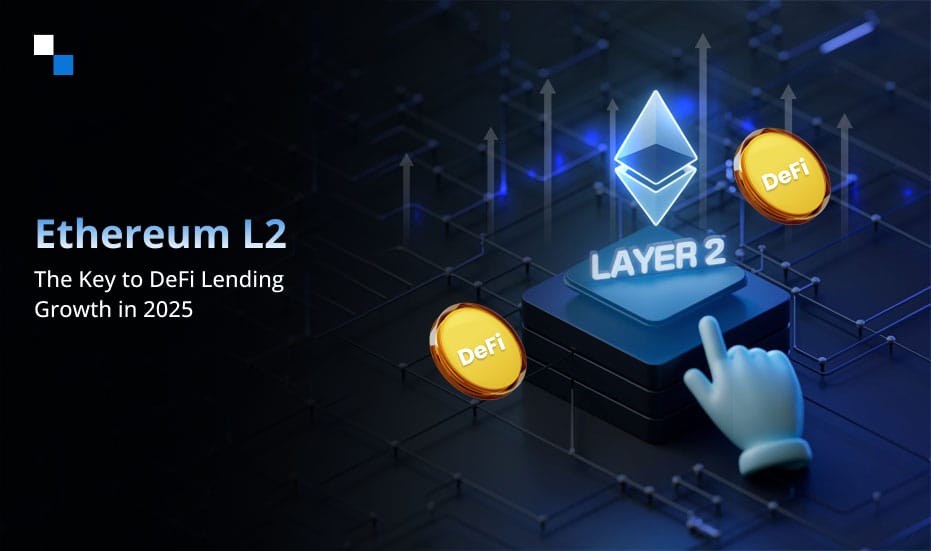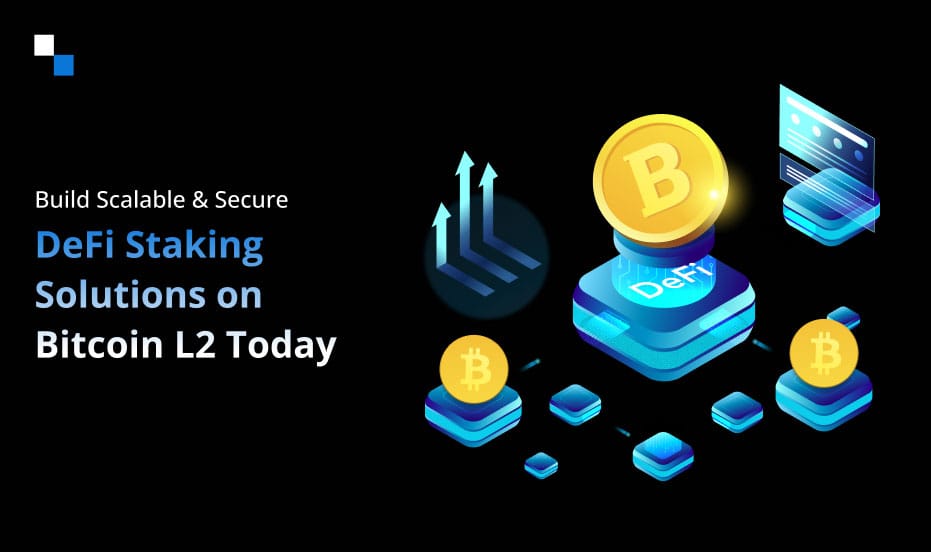
Focusing on Enterprise blockchain solutions for Transforming Organizations of Tomorrow
March 21, 2023
A Step-by-Step Guide to Custom Blockchain App Development
March 22, 2023DeFi stands for “decentralized finance,” it refers to a system of financial applications and services that are built on a decentralized blockchain network, such as Ethereum, BSC, Polkadot, Solana, etc.
DeFi applications operate on a peer-to-peer basis and don’t require any intermediaries. On the contrary, traditional finance relies on centralized intermediaries like banks and financial institutes.
There are a range of financial services offered by DeFi applications, including lending and borrowing, insurance, trading, and DeFi asset tokenization. These services are typically implemented using smart contracts- smart contracts are self-executing agreements that automatically enforce the rules and terms of the transaction, without requiring a trusted intermediary.
Some of the benefits of DeFi include greater transparency, lower costs, increased accessibility, and more efficient transactions.
How DeFi Got its Start?
DeFi, or Decentralized Finance, got its start in 2017 with the launch of the Ethereum-based platform called MakerDAO. MakerDAO created a decentralized stablecoin called Dai, which is pegged to the value of the U.S. dollar and can be used as a means of exchange and a store of value within the Ethereum ecosystem.
This was followed by the launch of other DeFi platforms and protocols, such as Uniswap, Compound, and Aave, which offered a range of financial services such as decentralized exchanges, lending and borrowing, and asset management. These protocols were built on the Ethereum blockchain as it provided a transparent and secure platform for DeFi apps.
The growth of DeFi development accelerated in 2020, driven by a number of factors including the increase in cryptocurrency prices, the COVID-19 pandemic, and the growing interest in blockchain technology from institutional investors. As a result, the total value locked (TVL) in DeFi protocols grew from less than $1 billion in early 2020 to over $80 billion by May 2021.
Today, DeFi continues to evolve and expand, with new platforms and protocols being launched on a regular basis. While the field is still relatively new and faces many challenges, such as regulatory uncertainty and scalability issues, it has the potential to transform the traditional financial system by offering greater accessibility, transparency, and efficiency.
Advantages of DeFi
DeFi is highly flexible and customizable, allowing developers to create various financial products and services that meet the needs of users.
Here are some of the advantages of DeFi:
- Accessibility
DeFi Enables financial inclusion, it offers greater accessibility to financial services, particularly for individuals who may not have access to traditional financial institutions. With DeFi, anyone with an internet connection and a compatible wallet can access a range of financial services, including lending, borrowing, and trading, from anywhere in the world. - Transparency
DeFi promotes greater transparency in financial transactions. Since it operates on a public blockchain, all transactions are recorded on a decentralized ledger that is accessible to anyone. - Security
DeFi offers greater security than traditional finance, it makes it more difficult to manipulate or disrupt the network. Additionally, Defi Development Services often implement advanced security measures, such as multi-signature wallets and smart contract audits, to protect users’ funds. - Efficiency
DeFi transactions are faster and more efficient than traditional finance as DeFi transactions are conducted on a peer-to-peer basis. - Lower Costs
DeFi transactions are more cost-effective than traditional finance. DeFi transactions often involve lower fees than traditional transactions, as there are fewer intermediaries involved. Additionally, DeFi applications often offer more competitive interest rates and other financial incentives, which can help users save money in the long run.
Get the best Decentralized Finance Development Services
Schedule Free DemoUse Cases of DeFi
DeFi is a rapidly evolving ecosystem that offers a variety of use cases. Here are some of the most cherished used cases of DeFi:
- Lending and Borrowing
DeFi lending platforms allow users to earn interest on their cryptocurrency holdings by lending them to other users, while borrowers can use cryptocurrency as collateral to secure loans. - Decentralized Exchanges
DeFi decentralized exchanges (DEXs) allow users to trade cryptocurrencies without the need for a centralized intermediary. By using smart contracts, DEXs enable peer-to-peer trading and offer greater security and transparency than traditional centralized exchanges. - Stablecoins
DeFi Enables the creation of stable digital assets. DeFi stablecoins are digital assets that are designed to maintain a stable value relative to a fiat currency or another asset. Stablecoins are used to enable fast and secure transactions within the DeFi ecosystem, as they can be used as a medium of exchange without the volatility of other cryptocurrencies. - Yield Farming
DeFi enables automated investment strategies. DeFi yield farming allows users to earn rewards by providing liquidity to various DeFi platforms. By using automated investment strategies, yield farmers can maximize their returns and earn passive income from their cryptocurrency holdings. These use cases have made DeFi development services all the more popular. - Insurance
DeFi insurance protocols allow users to protect their investments against various risks, such as hacks, smart contract failures, and other events that may result in the loss of funds. By using smart contracts, DeFi insurance protocols can automate the claims process and provide greater transparency and security to users.
Final Words
Overall, DeFi represents a paradigm shift in the way we think about finance, and it has the potential to create a more equitable and inclusive financial system. By exploring the world of DeFi, we can gain a deeper understanding of the possibilities and challenges of this emerging field and be better equipped to navigate the changing landscape of finance. Get in touch with Antier, the top DeFi development company to discuss your requirements with its subject matter experts.



